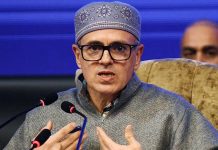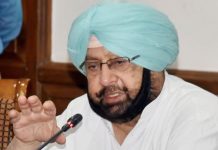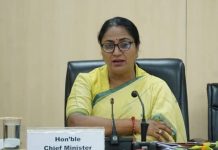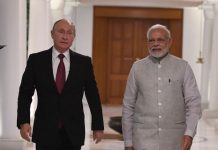
As the Delhi Assembly elections approach in 2025, one thing is clear, the use of artificial intelligence is playing an unprecedented role in shaping the political landscape. For the first time, voters who are often tech-savvy and highly connected, find themselves at the centre of a digital revolution in politics. In a city as diverse and dynamic as Delhi, political parties are increasingly turning to use AI on platforms like Facebook, Instagram, and Twitter to influence the electorate—and the younger generation is at the heart of this transformation.
Political parties in Delhi are now investing heavily in AI strategies to connect with voters, particularly the younger demographic. With over 60 per cent of Delhi’s population under the age of 35, the youth vote has become a key battleground for political parties. From videos and memes the digital space has become a crucial tool for shaping public opinion.
Some of the parties who have traditionally positioned itself as a party of the people, has lead the charge in using AI to engage with voters. Over the years, it has built a robust online presence.
As the digital influence grows, political campaigns are evolving with the use of artificial intelligence. Political teams utilize sophisticated algorithms to optimize digital ad placements, making sure that the right message reaches the right person at the right time.
However, with the increased use of the AI come the challenges of misinformation and polarization. False narratives, unverified claims, and biased content spread rapidly through social networks, potentially influencing voters in harmful ways.
Speaking to Tehelka.com, Sidhharrth S Kumaar, poll strategist and founder of NumroVani said that AI has helped and empowered the campaigns to be data-driven voter profiling, microtargeting, predictive analytics, and automated digital interaction.
“AI is being used for sentiment monitoring, real-time strategy changes, chatbots driven AI, and tailored messages. However, with Indian voters wherein it is hard to differentiate deepfake films, propaganda, and voter manipulation poses ethical questions, and the current regulations of ECI is not strict enough on implementation enough to proactively manage influence on voters,” he said.
Meanwhile, Co-founder, Spydra Technologies, Manish Tewari said that as AI continues to evolve, its role in social media poll campaigns will only expand. From automating content creation to enhancing audience engagement, AI-driven polls are revolutionizing the digital marketing landscape, making campaigns more efficient, data-driven, and impactful.
In the rush to win over young voters, political parties are sometimes accused of pushing divisive or exaggerated messages.
Manish Mohta, Managing Director, Learning Spiral said, “Tools with AI capabilities improve outreach, streamline communications, and maximize the impact of marketing strategies, but as proponents of digital literacy, we stress the importance of fact-based information exchange, data privacy protection, and ethical AI use. In an increasingly digitized environment, artificial intelligence (AI) may increase democratic participation, promote civic engagement, and arm voters with knowledge when used properly.”
In the rush to win over young voters, political parties are sometimes accused of pushing divisive or exaggerated messages.
Raising concern over same, Hariom Seth, founder, Tagglabs said, “AI is truly transforming poll campaigns on social media. AI generated humorous video gave changes the entire landscape of digital campaigns. While the current trend of lighthearted slander is highly engaging and effective, one has to be wary of the misuse of deepfake videos.”
As the 2025 Delhi Assembly elections near, one thing is evident: social media is not just a tool for campaigning—it’s a space where young voters are shaping the future of Delhi’s politics. Digital platforms allow voters to engage in real-time conversations, discuss political ideologies, and even challenge traditional party lines.
The shift toward digital campaigning also highlights a larger trend in global politics: the growing importance of the youth vote. With more than half of Delhi’s electorate under the age of 35, their engagement on social media could make or break a candidate’s chances. In a city where traditional methods of campaigning still hold sway, the rise of digital strategies represents a profound shift in how elections are fought and won.













